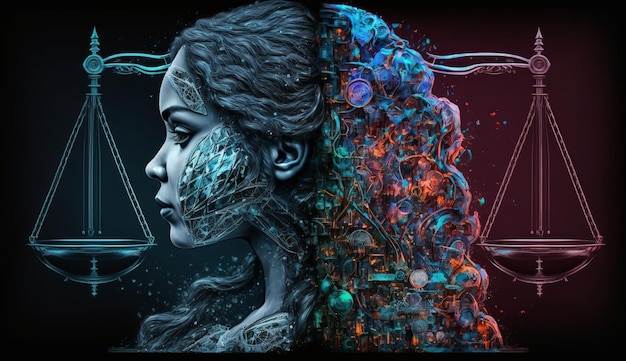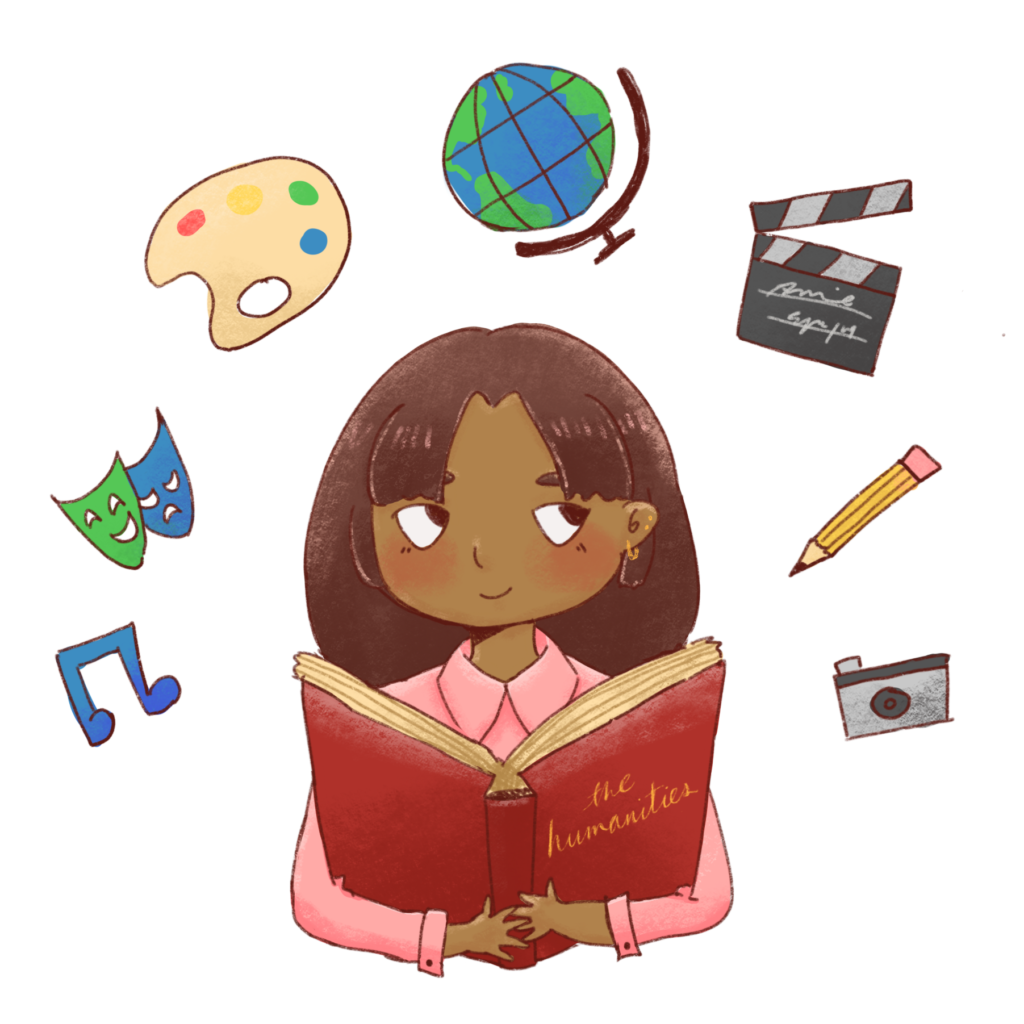AI and social justice are increasingly intertwined in the contemporary discourse around technology and ethics. As we navigate a future shaped by artificial intelligence, the insights of scholars like Ruha Benjamin become crucial in understanding the moral implications of these advancements. She argues that while tech companies tout the promise of ethical technology, their innovations often perpetuate existing societal injustices, as seen in misuse of data and biased algorithms. By examining AI through the lens of social justice in technology, we can uncover the deep-rooted inequities that these systems exacerbate rather than alleviate. Ultimately, it’s imperative for us to forge a future of AI that not only prioritizes efficiency but actively champions the rights and voices of marginalized communities.
The intersection of artificial intelligence and equity is reshaping our understanding of technology’s role in society. As discussions about responsible innovations proliferate, thinkers like Ruha Benjamin emphasize the need for an ethical approach that addresses systemic inequalities. By envisioning a world where technological developments align with social justice objectives, we can foster more inclusive and equitable outcomes. The arts and humanities play a pivotal role in this dialogue, providing critical frameworks to evaluate the societal impact of AI. Through a holistic lens, we can challenge the dominant narratives surrounding machine learning and advocate for solutions that truly serve the common good.
The Relationship Between Arts, Humanities, and AI
The intersection of arts, humanities, and artificial intelligence (AI) is a pivotal area that influences our collective understanding and future development of technology. As Ruha Benjamin eloquently pointed out, to foster a society that prioritizes ethical technology, we must integrate the creative and reflective insights from the arts and humanities into the narrative of AI development. These fields encourage critical examination of the cultural implications of AI, enriching the discourse around technological progress and helping to mitigate the risks of technological determinism. Without these perspectives, we run the risk of allowing algorithms to dominate decision-making processes without fully understanding their societal impacts.
Moreover, the arts and humanities inspire imagination and creativity, inviting us to envision alternatives to the present technological trajectory. They provide a framework through which we can scrutinize not just the effectiveness of AI, but also the moral and ethical dimensions associated with its implementation. By emphasizing storytelling, ethical inquiry, and social critique, we can cultivate a more nuanced understanding of how technology operates within our social fabric, ensuring that AI serves the collective good rather than reinforcing existing inequalities.
AI, Ethical Technology, and Social Justice
As we navigate the complexities of AI in society, it becomes imperative to consider the role of ethical technology in promoting social justice. Ruha Benjamin’s insights remind us that technological advancements should not be an excuse for perpetuating systemic injustices. Rather, they should be harnessed as tools to enhance equity and empower marginalized communities. This means holding tech companies accountable for their role in societal outcomes, particularly as they apply AI solutions that can inadvertently exacerbate disparities, such as in law enforcement or healthcare access.
The dialogue surrounding AI and social justice is not merely theoretical; it has tangible consequences in the real world. For instance, algorithms involved in predictive policing or facial recognition have shown bias against marginalized groups, resulting in deeper societal wounds. Thus, the quest for ethical technology must be aligned with a commitment to social justice, ensuring that as we innovate, we radically rethink the foundational values guiding AI development. By promoting an interdisciplinary approach that includes voices from the arts, humanities, and social sciences, we can craft technologies that uplift rather than oppress.
Visioning a Dystopia-Free Future with AI
The conversation about AI often leans towards dystopian outcomes—the fear of AI taking over jobs, or surveillance systems infringing on our privacy. However, Ruha Benjamin urges a reassessment of these narratives, advocating for a future where technology aids humanity rather than enslaves it. By centering our visions on creativity and collective welfare, we can reimagine the role of AI in society, emphasizing solutions that prioritize inclusivity and diversity. This reimagining calls for critical engagement with current technologies and a refusal to accept harmful norms as unchangeable.
In shifting the discourse away from fear towards empowerment, we can embrace a future where AI serves as a partner in addressing social issues. This includes tackling systemic problems such as inequality in education, access to healthcare, and environmental sustainability. A dystopia-free future, as proposed by Benjamin, invites us to envision systems that foster collaboration, respect for human dignity, and cultural participation, making technology a tool for justice rather than oppression.
Resisting Technological Elitism
One of the challenges that Ruha Benjamin highlights is the issue of technological elitism where a select group of individuals, often billionaires and tech moguls, dictate the trajectory of AI development without regard for the broader implications on society. This form of elitism can lead to solutions that prioritize profit over people and reflects a disconnect between the creators of technology and those who are affected by it. Benjamin’s call to action for inclusive dialogue stresses the necessity of involving a diverse set of stakeholders in the conversation about AI, from technologists to artists and community organizers.
To dismantle technological elitism, we must champion policies that encourage broader participation in tech development processes. By fostering collaborations that span disciplines and include voices from underrepresented communities, we can create a landscape where AI serves the public good. The integration of ethical considerations grounded in the social sciences informs responsible site-specific applications of technology, ensuring innovations are reflective of and responsive to the needs of all citizens.
Rethinking Algorithms: The Need for Contextual Depth
As Ruha Benjamin asserts, mere computational depth of algorithms is not sufficient if it lacks social and historical context. AI should not be a black box of mathematical calculations devoid of ethical consideration. The push for deeper engagement with the societal implications of algorithms entails recognizing the historical patterns of injustice that many AI systems perpetuate. Benjamin calls for the evaluation of algorithms through a lens that scrutinizes their impact on marginalized populations, thus advocating for technology that truly understands human complexity.
To achieve this, interdisciplinary cooperation is paramount; merging technical expertise with insights from the humanities and social sciences can lead to the development of more socially conscious AI systems. By understanding the cultural narratives and historical contexts that shape human experiences, technologists can create algorithms that account for diversity and intersectionality. This comprehensive approach can facilitate technological innovations that are not only efficient but also equitable, ensuring that AI contributes positively to society.
Creative Solutions for Ethical AI Development
The call for creativity in technology development is critical in crafting ethical AI systems that reflect our shared values. Ruha Benjamin emphasizes the importance of imagination in envisioning AI that strengthens community ties rather than undermining them. Universities and institutions play a crucial role in fostering environments where critiques of technology can partner with innovative thinking, prompting the next generation of thinkers to conceive of alternative pathways for AI.
Creative solutions involve asking bold questions and challenging existing paradigms that frame technology as inherently progressive. Instead, Benjamin invites us to explore what it truly means to cultivate AI technologies as instruments of justice. By integrating artistic expression, community narratives, and participatory design practices, we can develop a vision for AI that celebrates human ingenuity and cultivates social well-being.
Building Community Resilience through Technology
In alignment with Ruha Benjamin’s insights, community resilience can be significantly enhanced through the intentional application of technology alongside social frameworks. This means developing AI systems that do not just aim for efficiency but also prioritize the needs and experiences of the communities they serve. Building systems that reflect community values requires deep engagement with local voices and a commitment to inclusive design.
By focusing on resilience, we can leverage technology to build healthier communities, creating pathways for collaboration and mutual support. When technology is used to amplify community strengths—such as through education, local health initiatives, and innovative arts programs—AI serves as a catalyst for positive change. This reflects a shift away from viewing technology as an external force and towards embracing it as an integral part of the communal fabric that fosters growth and solidarity.
The Role of Academia in Shaping AI Ethics
Academia has a vital role in shaping the discourse around AI ethics and cultivating a generation of technologists who are aware of the societal implications of their work. Ruha Benjamin urges educational institutions to emphasize interdisciplinary studies that merge technical expertise with ethical inquiry from the humanities and social sciences. By fostering environments where critical thinking and moral reasoning are paramount, educational institutions can equip future innovators with the tools necessary for responsible AI development.
This academic shift not only encourages a more holistic approach to technology but also underscores the importance of questioning dominant narratives about progress. Academia must encourage students to challenge the status quo and envision technology as a medium for social transformation rather than mere economic gain. By drawing from diverse backgrounds, including social justice movements and artistic expression, academia can play a pivotal role in ensuring that AI technologies prioritize human welfare and community enrichment.
Envisioning Beyond Borders: A Call for Global Cooperation
Ruha Benjamin’s discussion also touches on the necessity of global cooperation in envisioning the future of AI. In a world increasingly divided by geopolitical tensions, the response to technological advancements cannot be fragmented or insular. Collaborative efforts across nations, particularly in the development of ethical AI, can help establish a framework that prioritizes universal human rights and equitable access to technology.
This call for unity emphasizes that challenges posed by AI are not confined to individual nations but are indeed global concerns. Therefore, adopting collaborative approaches that respect cultural diversity and prioritize social justice creates a foundation for responsible and equitable technological development. By working together internationally, we can craft policies and frameworks that transcend borders, ensuring that AI serves humanity as a whole, rather than reinforcing existing inequalities.
Frequently Asked Questions
How does Ruha Benjamin view the intersection of AI and social justice?
Ruha Benjamin highlights that the intersection of AI and social justice is fraught with challenges, as AI technologies often exacerbate existing inequalities rather than alleviate them. She argues that many AI systems, marketed as efficient solutions, can lead to more oppression, particularly for marginalized groups. Benjamin calls for a critical examination of how AI is developed and implemented, advocating for a broader understanding of social and historical contexts alongside technical expertise.
What are the ethical implications of AI technologies according to Ruha Benjamin?
According to Ruha Benjamin, the ethical implications of AI technologies are profound, as many of them operate under the guise of neutrality while reinforcing systemic injustices. She critiques the notion that AI can make moral decisions based solely on algorithms, arguing that without consideration for social complexities, these technologies can harm vulnerable populations, akin to historical eugenics practices. Benjamin advocates for a more inclusive dialogue that prioritizes ethical technology in the pursuit of social justice.
Why does Ruha Benjamin emphasize the importance of arts and humanities in the development of ethical technology?
Ruha Benjamin emphasizes the importance of arts and humanities in developing ethical technology because she believes that creativity and imagination are essential in addressing the limitations of AI. By incorporating diverse perspectives and critical inquiry from the arts, we can better understand the social implications of technology, fostering innovation that aligns with social justice rather than perpetuating harm. Benjamin urges universities to prioritize these fields to help reimagine technology for the collective good.
What dangers does Ruha Benjamin associate with the current trajectory of AI and its developers?
Ruha Benjamin associates significant dangers with the current trajectory of AI, particularly the concentration of power in the hands of tech elites who may lack a genuine understanding of societal issues. She warns that these individuals often prioritize self-interest over public welfare, leading to technologies that reinforce inequities. Benjamin urges a reevaluation of who is involved in the development of AI to include voices from diverse communities and fields, ensuring that solutions serve the collective good.
How can we reimagine technology to promote social justice, as per Ruha Benjamin’s insights?
Ruha Benjamin suggests that to reimagine technology in a way that promotes social justice, we must challenge conventional narratives about progress and efficiency in AI. She encourages innovative thinking that looks beyond current technological paradigms, advocating for solutions that dismantle existing power structures and embrace public goods. By fostering collaborative efforts across disciplines, particularly in the arts and humanities, we can envision and develop technology that enhances social equality and addresses systemic injustices.
| Key Point | Explanation |
|---|---|
| Trust in Tech Elites | Ruha Benjamin questions the wisdom and altruism of tech billionaires in addressing human suffering. |
| AI and Oppression | Technologies often marketed as beneficial, such as facial recognition, can perpetuate social injustices. |
| Critique of AI Morality | AI’s perceived neutrality in moral decision-making can harm marginalized communities, similar to historical eugenics. |
| Need for Diverse Knowledge | Technological solutions are often created by those lacking understanding of societal issues, leading to inadequate answers. |
| Call for Creativity | Benjamin urges a focus on the arts and humanities for a more inclusive future imagination. |
Summary
AI and social justice are interconnected issues that challenge us to rethink the role of technology in our society. Ruha Benjamin emphasizes the need to question who benefits from AI advancements and how they are implemented. As the dialogue surrounding AI progresses, it is crucial to ensure that voices from diverse backgrounds are included in the conversation to foster a future that uplifts rather than oppresses marginalized communities.



